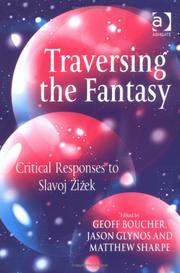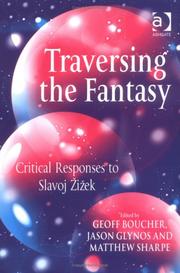| Listing 1 - 8 of 8 |
Sort by
|
Book
ISBN: 9781501344077 1501344072 9781501344053 9781501369773 9781501344060 1501344056 1501344064 1501344080 1501369776 Year: 2023 Publisher: New York, N.Y. Bloomsbury Academic
Abstract | Keywords | Export | Availability | Bookmark
 Loading...
Loading...Choose an application
- Reference Manager
- EndNote
- RefWorks (Direct export to RefWorks)
Although Habermas has written about the cultural role of literature and about literary works, he has not systematically articulated a literary-critical method as a component of either communicative reason or post-metaphysical thinking. Habermas and Literature brings Habermasian concepts and categories into contact with aesthetic and cultural theories in and around the Frankfurt School, and beyond. Its central claim is that Habermas' contribution to literary and cultural criticism is the concept of literary rationality and the notion that literature performs a key role in the formation of the modern social imaginary. Habermas and Literature maintains that literary works have "two faces" - discursive intervention in the public sphere and personal integration of imaginative disclosures - that depend upon two modalities of literary reception: critique and identification. It develops the resulting literary theory through detailed discussion of the theories advanced by Habermas, followed in each case by synthetic and reconstructive argumentation that brings the framework of communicative reason into dialogue with literary methods, aesthetic theories and psychoanalytic categories. It does so through close engagement with debates around aesthetic rationality, world disclosure, social imaginaries, post-secular society and the utopian demand for happiness articulated by artworks. In the process, the Habemasian position is critically reconstructed when necessary, with reference to psychoanalytic and literary theories, and tested, in relation to demanding fiction and popular works.
Literature and society --- Literature --- Critical theory --- Critical social theory --- Critical theory (Philosophy) --- Critical theory (Sociology) --- Negative philosophy --- Criticism (Philosophy) --- Philosophy, Modern --- Rationalism --- Sociology --- Frankfurt school of sociology --- Socialism --- Literature and philosophy --- Philosophy and literature --- Literature and sociology --- Society and literature --- Sociology and literature --- Sociolinguistics --- Philosophy --- Theory --- Social aspects --- Habermas, Jürgen. --- Habermas, Jürgen --- Habŏmasŭ, Wirŭgen --- Habŏmasŭ --- Khabermas, I︠U︡. --- Khabermas, I︠U︡rgen --- Ha-pei-ma-ssu, Yu-erh-ken --- Habeimasi --- הברמאס, יורגן --- יורגן הברמס --- 哈贝马斯 --- Aesthetics --- Habermas, Jürgen --- Adorno, Theodor W.
Book
ISBN: 1844655210 9781844655212 Year: 2012 Publisher: Durham: Acumen,
Abstract | Keywords | Export | Availability | Bookmark
 Loading...
Loading...Choose an application
- Reference Manager
- EndNote
- RefWorks (Direct export to RefWorks)
Marxism as an intellectual movement has been one of the most important and fertile contributions to twentieth-century thought. No social theory or political philosophy today can be taken seriously unless it enters a dialogue, not just with the legacy of Marx, but also with the innovations and questions that spring from the movement that his work sparked, Marxism. Marx provided a revolutionary set of ideas about freedom, politics and society. As social and political conditions changed and new intellectual challenges to Marx's social philosophy arose, the Marxist theorists sought to update his social theory, rectify the sociological positions of historical materialism and respond to philosophical challenges with a Marxist reply. This book provides an accessible introduction to Marxism by explaining each of the key concepts of Marxist politics and social theory. The book is organized into three parts, which explore the successive waves of change within Marxist theory and places these in historical context, while the whole provides a clear and comprehensive account of Marxism as an intellectual system.
Book
ISBN: 9780980544046 Year: 2008 Publisher: Melbourne re.press
Abstract | Keywords | Export | Availability | Bookmark
 Loading...
Loading...Choose an application
- Reference Manager
- EndNote
- RefWorks (Direct export to RefWorks)
Book
ISBN: 1282620576 9786612620577 0748642226 9780748642229 9780748638031 0748638032 9780748638048 0748638040 9780748637454 9781282620575 6612620579 Year: 2010 Publisher: Edinburgh Edinburgh University Press
Abstract | Keywords | Export | Availability | Bookmark
 Loading...
Loading...Choose an application
- Reference Manager
- EndNote
- RefWorks (Direct export to RefWorks)
This book provides students and experts alike with a new kind of introduction to Slavoj Zizek's political theory. Going beyond recounting Zizek's positions on ideology, capitalism, Leninism, Stalinism, fascism, and related matters, it offers readers an argumentative reconstruction of Zizek's ideas which places his prolific output in critical dialogue with political philosophy, critical theory, and the history of ideas.But this reconstruction is also a cautionary tale. It argues that Zizek, since 1995, has turned away from the Lacanian and Hegelian insights that made his first works so ground-b
Political science -- Philosophy. --- Political science. --- Zizek, Slavoj. --- Political science --- Political Science --- Law, Politics & Government --- Political Science Theory --- Political philosophy --- Philosophy --- Žižek, Slavoj
Book
ISBN: 9781498558129 9781498558143 Year: 2017 Publisher: Lanham : Lexington Books,
Abstract | Keywords | Export | Availability | Bookmark
 Loading...
Loading...Choose an application
- Reference Manager
- EndNote
- RefWorks (Direct export to RefWorks)
One of the most persistent, troubling, and divisive of the ideological divisions within modernity is the struggle over the Enlightenment and its legacy. Much of the difficulty is owed to a general failure among scholars to consider how history, philosophy, and politics work together. Rethinking the Enlightenment bridges these disciplinary divides. Recent work by historians has now called into question many of the clichés that still dominate scholarly understandings of the Enlightenment’s literary, philosophical, and political culture. Yet this work has so far had little impact on the reception of the Enlightenment, its key players, debates, and ideas in the disciplines that most rely on its legacy, namely, philosophy and political science. Edited by Geoff Boucher and Henry Martyn Lloyd, Rethinking the Enlightenment makes the case for connecting new work in intellectual history with fresh understandings of ‘Continental’ philosophy and political theory. In doing so, in this collection moves towards a critical self-understanding of the present
Digital
ISBN: 9780748642229 9780748638031 Year: 2022 Publisher: Edinburgh Edinburgh University Press
Abstract | Keywords | Export | Availability | Bookmark
 Loading...
Loading...Choose an application
- Reference Manager
- EndNote
- RefWorks (Direct export to RefWorks)

ISBN: 0754651924 Year: 2005 Publisher: Aldershot Ashgate
Abstract | Keywords | Export | Availability | Bookmark
 Loading...
Loading...Choose an application
- Reference Manager
- EndNote
- RefWorks (Direct export to RefWorks)

ISBN: 9780754651925 Year: 2005 Publisher: Aldershot : Ashgate,
Abstract | Keywords | Export | Availability | Bookmark
 Loading...
Loading...Choose an application
- Reference Manager
- EndNote
- RefWorks (Direct export to RefWorks)
Slavoj Zizek is one of the most provocative and important thinkers writing in contemporary philosophy. This book is an engaged debate with Zizek. It contains a series of specially commissioned critical essays from an impressive collection of contributors covering the full extent of his oeuvre. Essays examine Zizek on cultural theory, film studies, ethics, political theory, social theory, Kant and Lacanian psychoanalysis. In the spirit of Zizek's own interventions, these essays critically interrogate his ideas, challenging him to respond directly which he does in an extended polemical reply that concludes the collection. This volume represents an exciting and important contribution to contemporary theoretical debate and adds significantly to the growing literature on Zizek.
| Listing 1 - 8 of 8 |
Sort by
|

 Search
Search Feedback
Feedback About UniCat
About UniCat  Help
Help News
News